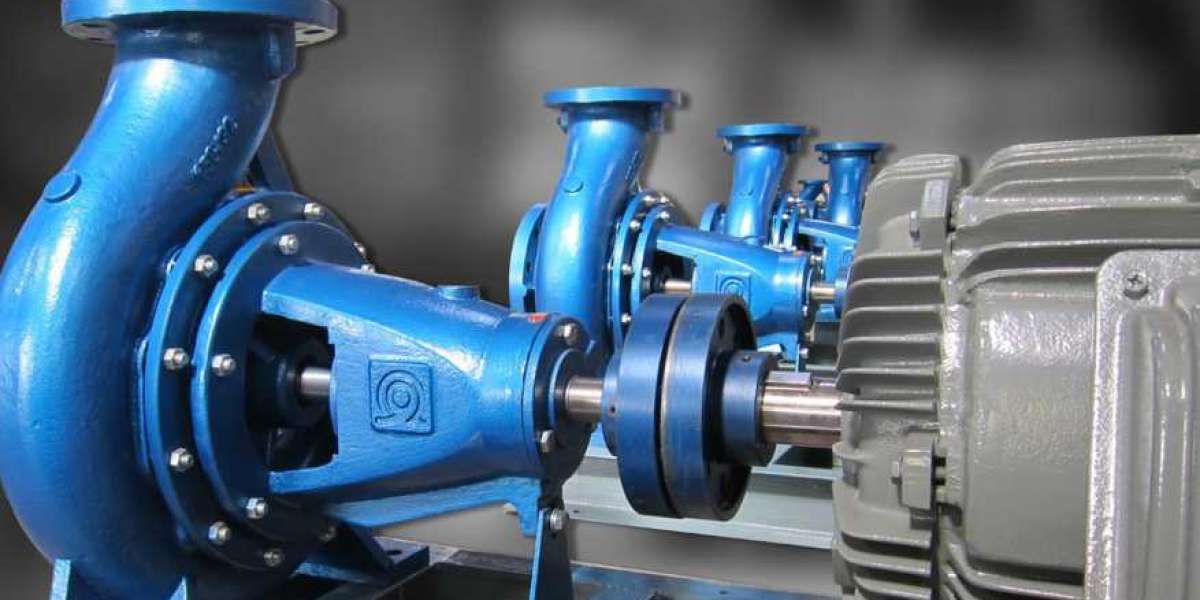Magnetically driven pumps, also known as magnetic drive pumps, are revolutionizing fluid handling across various industries. These pumps offer an innovative solution to common challenges like leakage, corrosion, and mechanical wear. By eliminating the need for traditional shaft seals, magnetic drive pumps ensure a reliable, energy-efficient, and environmentally friendly operation.
What Is a Magnetically Driven Pump?
A magnetically driven pump operates using a magnetic coupling between the motor and the pump's impeller. In a traditional pump, a shaft connects the motor to the impeller, which can lead to leakage and seal failures over time. Magnetically driven pumps remove this mechanical connection, replacing it with powerful magnets to transmit rotational energy to the impeller without any direct contact. This design prevents fluid from leaking, even under high-pressure conditions.
How Does a Magnetic Drive Pump Work?
The pump consists of two sets of magnets: one connected to the motor (the driving magnet) and another attached to the impeller (the driven magnet). When the motor turns, the driving magnet rotates, which in turn causes the driven magnet and impeller to rotate. This magnetic interaction creates the necessary force to move fluid through the pump, without the need for a physical connection.
This unique design prevents common issues like seal wear, leakage, and contamination, making magnetically driven pumps ideal for handling hazardous, corrosive, or sensitive fluids.
Key Benefits of Magnetically Driven Pumps
1. Leak-Free Operation
One of the primary benefits of magnetically driven pumps is their leak-free design. Since there are no mechanical seals, the risk of fluid leakage is eliminated. This is particularly important in industries that handle toxic, corrosive, or valuable fluids, such as chemical processing, pharmaceuticals, and water treatment.
2. Reduced Maintenance
Mechanical seals are often a common point of failure in traditional pumps, requiring regular maintenance or replacement. The seal-less design of magnetic drive pumps drastically reduces the need for maintenance, resulting in lower long-term operating costs and improved system reliability.
3. Corrosion Resistance
Magnetically driven pumps are often constructed with corrosion-resistant materials such as stainless steel, plastics, or composite materials. This makes them ideal for handling aggressive chemicals and corrosive liquids that could otherwise damage traditional pumps.
4. Energy Efficiency
Magnetic drive pumps tend to be more energy-efficient due to their compact design and frictionless operation. Since they don’t suffer from the mechanical losses associated with traditional seals and shafts, energy is conserved, contributing to reduced operational costs.
5. Safety
With no risk of leaks, magnetically driven pumps are safer to operate in environments that handle dangerous chemicals or explosive materials. This ensures worker safety and compliance with environmental regulations.
Applications of Magnetically Driven Pumps
Magnetic drive pumps are used in a wide range of industries due to their versatility, reliability, and leak-proof design. Some common applications include:
- Chemical Processing: Handling corrosive acids, bases, and solvents with no risk of contamination.
- Pharmaceutical Manufacturing: Pumping sensitive, sterile, or reactive fluids.
- Water Treatment: Safely managing toxic or corrosive wastewater and chemicals.
- Food and Beverage Industry: Moving delicate or high-purity fluids where contamination must be avoided.
- Oil and Gas: Circulating hazardous liquids in refinery operations or offshore platforms.
Considerations When Choosing a Magnetic Drive Pump
1. Material Compatibility
Selecting the right materials for the pump’s housing and impeller is critical when dealing with aggressive chemicals. Corrosion-resistant materials like stainless steel or certain plastics are often chosen to ensure durability and longevity.
2. Temperature and Pressure Ratings
Magnetically driven pumps may have limitations regarding the temperature and pressure they can handle. Be sure to select a pump rated for your specific operating conditions.
3. Viscosity and Flow Rates
The pump’s efficiency can vary depending on the viscosity of the fluid being handled. For thicker liquids, a larger or more powerful magnetic drive may be required to maintain adequate flow rates.
Conclusion
Magnetically driven pumps offer a leak-proof, efficient, and low-maintenance solution to fluid handling in industries where reliability and safety are paramount. With their unique magnetic coupling design, these pumps eliminate the risks associated with traditional shaft seals, making them ideal for use in chemical processing, pharmaceuticals, water treatment, and more. By investing in a magnetic drive pump, businesses can reduce maintenance costs, improve safety, and enhance operational efficiency.





